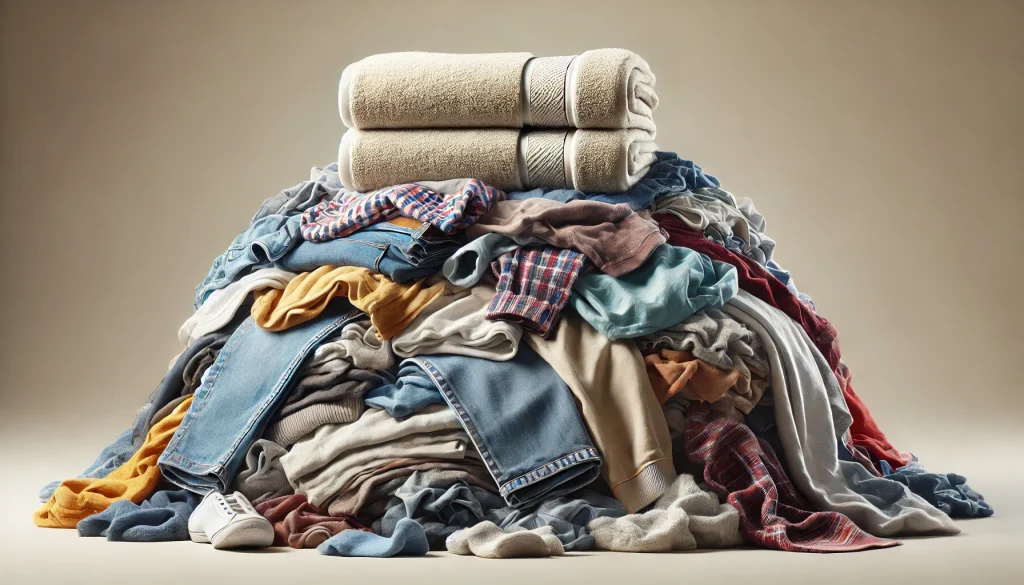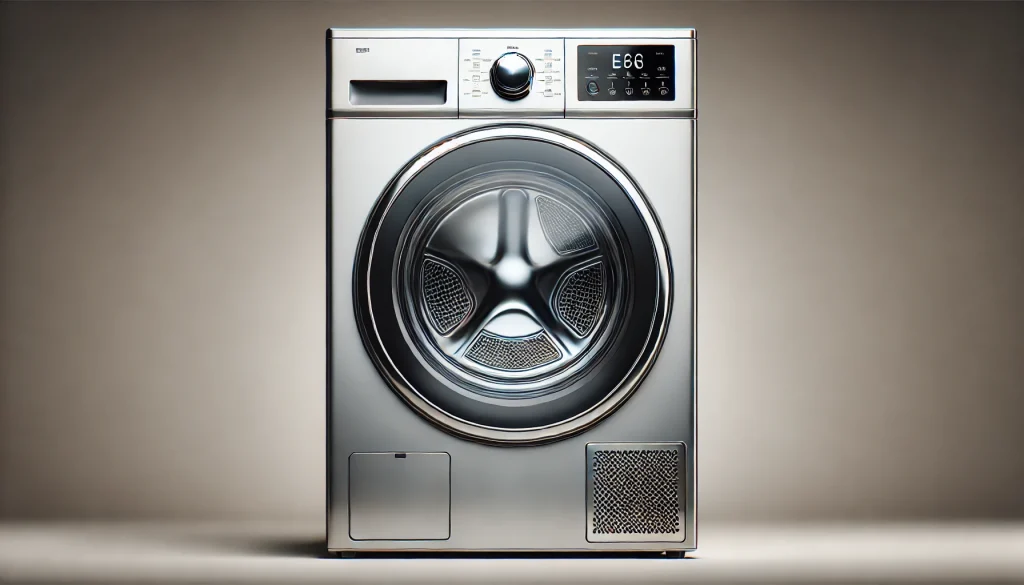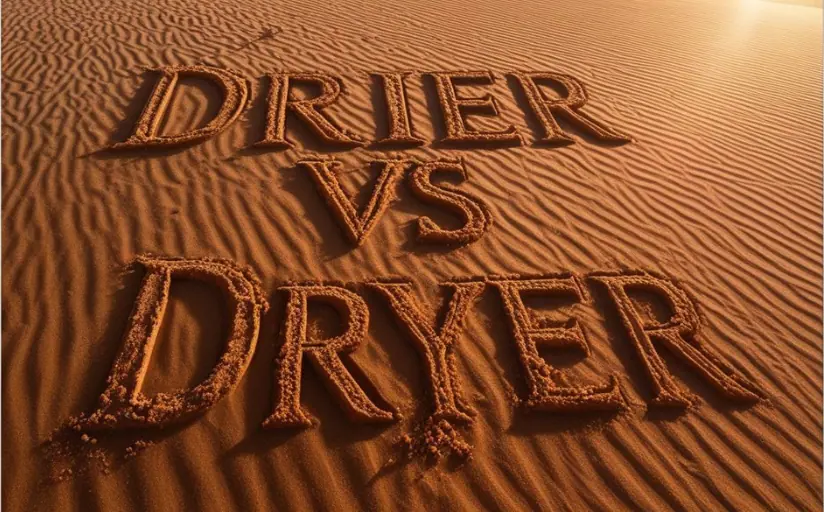Some of the least confusing aspects of English are homophones — words that sound the same but are spelled differently and mean different things. It’s especially easy to keep homophones straight when they have closely related definitions, right? Right!? If you’re either laughing or rolling your eyes, we’re on the same page. So, tell me: Is my sense of humor drier or dryer than you expected?
We all know that choosing the correct homophone can be tricky and frustrating, sort of like selecting the right settings on your dryer so you don’t shrink your favorite sweater. So, let’s clear up on how use drier and dryer correctly so you don’t get hung out to dry in your writing.
(If you make a purchase using the links in this post, we may earn a commission.)

Drier or Dryer at a Glance
Here’s the difference between drier and dryer at a glance:
- Drier is an adjective that compares the dryness of two or more things.
- Dryer is a noun that refers to a machine or device that removes moisture from something, such as clothing or hair.
In a nutshell, a dryer is a tangible object that will make something drier than it was before.
Here’s a quick tip:
- Drier is spelled with an i, like the word adjective
- Dryer is spelled with a y, like the word laundry
When To Use Drier
Drier is the comparative form of the adjective dry, so you’ll need to reference (compare it to) another object or a situation so that it makes sense. In most cases, it’s also appropriate to include the word than after the comparative adjective.
Drier Examples
- After a few hours in the sun, the clothes on the line were already much drier than before.
- The towel from the top of the pile was drier than the ones underneath.

When To Use Dryer
The noun dryer is easy to use; all you have to do is mention it in the correct context. The key distinction is that dryer names the tool or equipment that performs the drying action.
Dryer Examples
- I forgot to clean the lint trap in the dryer before starting the next load of laundry.
- Even though the manual explained all the settings, I still couldn’t figure out how to turn on my hair dryer.
When To Use More Dry or Dryer
You probably already know that instead of adding -er to the end of an adjective to make it comparative, you can use the adverb more in front of the root adjective. How do you know when to use more dry or dryer? Or should be more dry or drier? (Why is the English language so confusing?!)
We generally prefer drier in concrete comparisons because it’s simpler and more concise:
- These rocks are drier than the ones on the shoreline.
Here, we have a direct, straightforward comparison between two physical objects—rocks. Since this is a simple, tangible comparison of dryness, the drier is preferred.
However, in more abstract or stylized constructions, you might prefer more dry:
- The climate in this region is more dry than Ashley expected.
More dry is used in a broader, more abstract sense. Instead of directly comparing two specific things, we’re talking about the overall dryness of the climate compared to Ashley’s expectations, which can’t be accurately measured.

Drier or Dryer: Clear-Cut and Dry
Choosing between drier or dryer is pretty straightforward when you’re telling a story because the homophones sound the same. However, when you’re writing a review about how your new clothes dryer doesn’t work, a writing mistake will leave your readers thinking that you’re a quarter short of a full load.
To help avoid such slip-ups, consult these grammar resources to improve your understanding of tricky homophones so you can make your writing clearer and more professional:
BUY – Dear Deer: A Book of Homophones
BUY – Homophones Visualized
BUY – How Much Can a Bare Bear Bear?: What Are Homonyms and Homophones?
Apart from drier and dryer, are there any other homophones that you struggle with in particular? Let us know below in the comments!


Leave a Reply